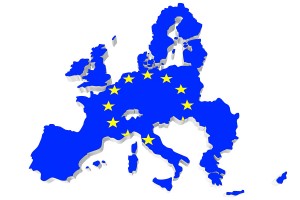Digital currencies like bitcoin have proven to be quite troublesome for an array of countries all over the world. Central banks and federal governments have repeatedly issued statements and officials have either celebrated or decried the virtual currency. The latest is a minister from France.
EurActive published an article that reported Pierre Moscovici, the French Minister for Economy and Finance, has urged the European Union to insert bitcoin and other virtual currencies onto its agenda. Some of the topics to discuss are the regulatory issues, the technology as a whole and its monetary structure.
 In Paris, Moscovici submitted his requests to EU member states on Mar. 4. Furthermore, the French policymaker will issue a letter to the European Commission in the next several days to mention the topics of bitcoin again.
In Paris, Moscovici submitted his requests to EU member states on Mar. 4. Furthermore, the French policymaker will issue a letter to the European Commission in the next several days to mention the topics of bitcoin again.
“This is an imperative topic to be treated not only at national level but also at European level. In order to ensure this necessary convergence, I intend to request the other countries of the European Union to bring the topic on the agenda of the Ecofin Council,” the minister told the press at a news conference.
It appears that many European nations are just as adamant in discussing the issue of cryptocurrencies. In September, Michel Barnier, the Internal Market Commissioner, stated that the European Commission was “working on the issues of electronic money such as bitcoins.”
Late last year, the European Banking Authority (EBA), a London-based European banking watchdog, released a report that highlighted what other central banks have already iterated: bitcoin is dangerous, risky and volatile and it would not be held responsible for any losses that transpire. It also noted that it would be assessing bitcoin even more moving ahead to determine if it should be regulated or not.
“Cases have been reported of consumers losing significant amounts of virtual currency with little prospect of having it returned,” the EBA noted. “While virtual currencies continue to hit the headlines and are enjoying increasing popularity, consumers need to remain aware of the risks associated with them.”
In 2012, the European Central Bank (ECB) released a paper entitled “The Relevance of Virtual Currency Schemes for Central Bankers” in which it studied the emergence and impact of decentralized, peer-to-peer payment systems. The primary purpose of the report was to clarify, define, address and classify digital currencies.
“Virtual currency schemes do not pose a risk to price stability, provided that money creation continues to stay a low level,” the report stated. “[Virtual currency schemes] tend to be inherently unstable, but cannot jeopardise financial stability, owing to their limited connection with the real economy, their low volume traded and a lack of wide user acceptance.”
An interesting point to consider is that the ECB study authors actually cited the Austrian School of Economics as being behind the premise of virtual currencies. The authors explained that individuals like Ludwig von Mises and F.A. Hayek and ideas akin to the Austrian business cycle theory are attributed to the short history of digital currencies.
“The theoretical roots of Bitcoin can be found in the Austrian School of economics and its criticism of the current fiat system and the interventions undertaken by governments and other agencies, which, in their view, result in exacerbated business cycles and massive inflation,” the report explained.



